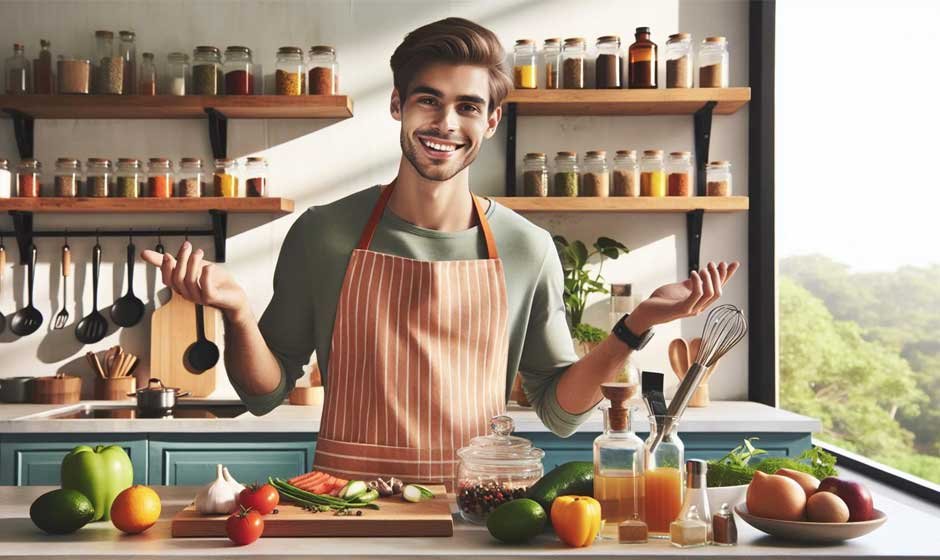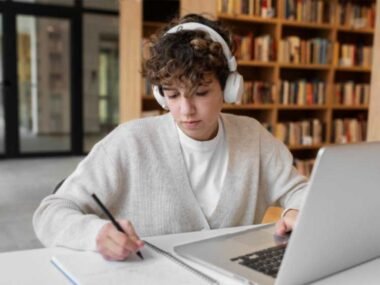Experimenting in the kitchen is more than trying new recipes—it’s a path to creativity. Playing with flavors, textures, and techniques challenges your instincts, sharpens problem-solving skills, and inspires unique ideas that bring excitement to the table. By moving away from rigid methods, you discover new combinations that both surprise your palate and spark imagination.
Cooking without strict rules builds confidence and resilience. Mistakes become lessons, successes feel deeply rewarding, and every dish becomes a personal expression of who you are. Whether you’re a seasoned chef or a casual cook, embracing experimentation transforms the kitchen into a space for growth, creativity, and endless possibilities.
How Kitchen Experiments Spark Creative Thinking
Venturing into the kitchen with a curious mindset opens doors to unexpected insights. By embracing mistakes, stretching your imagination with unique ingredients, and avoiding strict reliance on recipes, you unlock fresh avenues of creativity.
Turning Mistakes Into Flavorful Discoveries
Mistakes in the kitchen can lead to delightful surprises. Imagine accidentally swapping sugar for salt—suddenly, your dish transforms, leading to new flavor profiles. This shift forces you to adapt and rethink your approach, sparking creativity.
When a dish doesn’t turn out as planned, don’t discard it immediately. Consider what can be added or tweaked to make it memorable. A splash of lemon, an unexpected herb, or a drizzle of honey might just be what’s needed. Embracing these unexpected moments pushes you to experiment further and fosters a mindset that sees challenges as opportunities.
Flexing Your Imagination With Ingredients
Trying new ingredients can be exhilarating. Opening the pantry and selecting a spice you’ve never tried or a vegetable overlooked in your usual routine can challenge your palate. List out unique pairings you might never consider—cocoa and chili, for instance—or attempt to create a twist on traditional recipes.
Your imagination expands as you think of new combinations. Instead of sticking to familiar choices, reach for something unfamiliar. The process of exploring both exotic and everyday items helps you see these ingredients in a new light. The variety encourages you to think creatively about how flavors can dance together on your palate.
Breaking Free From Recipe Rules
Recipes are a solid foundation, yet you needn’t adhere to them rigidly. Think of them as starting points or suggestions rather than strict laws. By deviating slightly, perhaps by adding an extra pinch of a favorite spice or substituting an ingredient with what’s on hand, you can create something uniquely yours.
Challenge yourself to cook without a recipe entirely. Use your senses to guide the process—it might be surprising how developing this skill refines your taste and technique. Create your own versions of popular dishes or invent something completely new. Experimenting in this way nurtures creativity, fostering a sense of independence and confidence in your culinary ventures.
Stirring Up Inspiration Through New Techniques
Experimenting in the kitchen often leads to surprising results. You can find inspiration by drawing from diverse culinary backgrounds and trying out unfamiliar methods.
Learning From Different Cultures
Every culture has its own set of unique ingredients and techniques. Imagine the variety of flavors you can introduce to your cooking with elements like Indian spices or Italian herbs. Exploring these different styles can broaden your palate and encourage you to try new combinations that you might not have considered before.
Try incorporating new grains such as quinoa from South America or noodles from different Asian cuisines. Cookbooks and online resources are great guides. They provide context about a dish’s ingredients and significance. Taking part in cocktail creation classes can also highlight how flavors, culture, and storytelling come together. By understanding the story behind food, you’ll gain a deeper appreciation and find joy in experimenting.
Trying Unfamiliar Cooking Methods
There are countless cooking methods that can add new dimensions to your dishes. Techniques like sous vide bring precision, while grilling over open flames can impart a smoky essence that transforms flavors. Challenge yourself to step out of your comfort zone by baking, fermenting, or even air frying.
Using a slow cooker might simplify meal preparation, while exploring the world of pickling could introduce layers of flavor to your creations. Simple methods such as steaming or poaching might offer healthier alternatives. Engaging with these methods brings out versatility in you. Your curiosity will be rewarded with diverse textures and tastes, inspiring you to keep experimenting.
Building Confidence and Personal Growth
Experimenting in the kitchen not only fuels creativity but also nurtures confidence and fosters personal growth. By embracing curiosity and sharing your culinary creations, you are engaging in a process that can transform your daily life.
Embracing Curiosity in Daily Life
Trying new recipes or cooking techniques can spark a sense of curiosity. This exploration encourages adaptability and problem-solving. Say goodbye to the fear of failure as you learn that mistakes are just new lessons in disguise.
In the kitchen, each dish is a new opportunity to build self-assurance. As you experiment and learn, you gain confidence that spills over into other aspects of life, empowering you to tackle challenges with a fresh perspective.
Sharing Culinary Creations With Others
Sharing meals with friends and family can enhance your self-esteem. When you cook for others, you experience the joy of giving, which reinforces positive feelings and self-worth. Your efforts bring satisfaction and acceptance, creating meaningful connections.
You also receive valuable feedback, encouraging growth and improvement. Whether it’s a simple compliment or constructive criticism, each piece of feedback supports your journey toward culinary mastery and personal fulfillment.
Conclusion
Experimenting in the kitchen is more than just cooking; it’s a practice in creativity, resilience, and self-discovery. Every new flavor pairing, every mistake turned into a triumph, and every shared meal builds not only skill but also confidence. By embracing curiosity, breaking away from rigid rules, and welcoming unexpected results, you open yourself up to a world of possibilities that extend far beyond the stove. In the end, each dish you create becomes a reflection of your imagination—proof that the kitchen is one of the most rewarding places to explore, learn, and grow.










